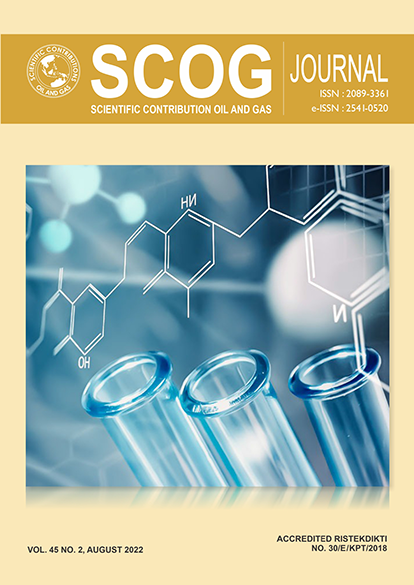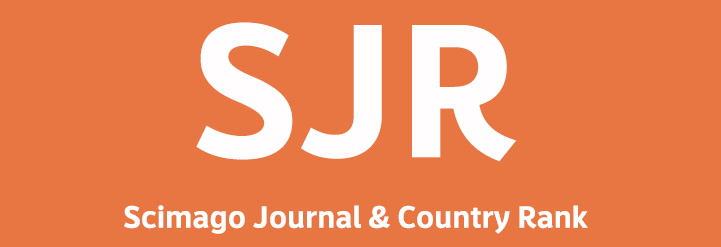The Effect of Methanol-Gasoline (M20) and Ethanol-Gasoline (E20) Blends on Material Compatibility
DOI:
https://doi.org/10.29017/SCOG.45.2.1183Keywords:
Ethanol, methanol, compatibility, EPDM, polyamideAbstract
Alcohol has the potential to be used as an alternative to fossil fuels to reduce total emissions from spark-ignition (SI) engines. The impact of a mixture of 20% methanol and ethanol in gasoline on the compatibility of Ethylene Propylene Diene Monomer (EPDM) and polyamide materials, which are used as fuel hoses in SI vehicles, is presented in this study. The immersion test methodology was employed to study the influence of both types of alcohol on gasoline blend to compatibility properties i.e., hardness and weight change. Based on the result, EPDM and polyamide materials have different characteristics of material compatibility with E20 and M20. Tests on M20 and E20 fuel samples on EPDM material show a higher effect on hardness by 5-9% than pristine gasoline. Additionally, there was no change in the weight of the polyamide material in the RON 90, E20, and M20 test samples. However, there was a change in the hardness of the polyamide material by 6-11% in RON 90, E20, and M20 fuels. Moreover, there was no change in the FTIR spectrum, indicating that there was no dissolution of the EPDM and polyamide materials into the test fuel for 6 weeks of immersion.References
Abdurrojaq, N., Ginanjar, K., Hidayat, W. N., Adwitiya,
G. A., Zaelani, R., Anggarani, R., Wibowo, C. S., &
Fathurrahman, N. A. (2021). PENGARUH METANOL DAN ETANOL TERHADAP SIFAT PENGUAPAN BENSIN RON 92: PENGUKURAN TEKANAN
UAP DENGAN METODE REID DAN DRY. Jurnal
Teknologi, 9(1), 32–41. https://doi.org/10.31479/jtek.
v9i1.112
Aghahossein Shirazi, S., Abdollahipoor, B., Martinson, J., Windom, B., Foust, T. D., & Reardon, K.
F. (2019). Effects of dual-alcohol gasoline blends on
physiochemical properties and volatility behavior.
Fuel, 252(April), 542–552. https://doi.org/10.1016/j.
fuel.2019.04.105
Anggarani Riesta, Cahyo S. Wibowo, and E. Y. (2015).
The Influence of Biodiesel Blends (Up to B-20) For
Parts of Diesel Engine Fuel System By Immersion
Test. Scientific Contributions Oil and Gas, 5, 39–45.
http://www.journal.lemigas.esdm.go.id
Awad, O. I., Mamat, R., Ali, O. M., Sidik, N. A. C., Yusaf,
T., Kadirgama, K., & Kettner, M. (2018). Alcohol
and ether as alternative fuels in spark ignition engine:
A review. Renewable and Sustainable Energy Reviews,
(January), 2586– 2605. https://doi.org/10.1016/j.
rser.2017.09.074
Calvin, Y. L., Hariyanto, P. A. T., Usman, A. I., Masuku,
M., Wibowo, C. S., Maymuchar, Anggarani, R.,
Fathurrahman, N. A., & Sugiarto, B. (2022). Volatility and physicochemical properties of gasoline-ethanol
blends with gasoline RON-based 88, 90, and 92.
Fuel, 307(August 2021), 121850. https://doi.
org/10.1016/j.fuel.2021.121850
Canakci, M., Ozsezen, A. N., Alptekin, E., & Eyidogan, M. (2013). Impact of alcohol-SI engine.
Renewable Energy, 52(x), 111–117. https://doi.
org/10.1016/j.renene.2012.09.062
Durbin, T. D., Karavalakis, G., Norbeck, J. M., Park,
C. S., Castillo, J., Rheem, Y., Bumiller, K., Yang, J.,
Van, V., & Hunter, K. (2016). Material compatibility
evaluation for elastomers, plastics, and metals exposed
to ethanol and butanol blends. Fuel, 163, 248–259.
https://doi.org/10.1016/j.fuel.2015.09.060
Masum, B. M., Masjuki, H. H., Kalam, M. A., Palash,
S. M., & Habibullah, M. (2015a). Effect of alcoholgasoline blends optimization on fuel properties,
performance, and emissions of a SI engine. Journal of
Cleaner Production, 86(2014), 230–237.
https://doi.org/10.1016/j.jclepro.2014.08.032
Masum, B. M., Masjuki, H. H., Kalam, M. A., Palash,
S. M., & Habibullah, M. (2015b). Effect of alcoholgasoline blends optimization on fuel properties,
performance, and emissions of a SI engine. Journal
of Cleaner Production, 86, 230–237. https://doi.
org/10.1016/j.jclepro.2014.08.032
Sugiarto, B., Maymuchar, Wibowo, C. S., Davigara
Dwika, P., Hargiyanto, R., & Krisnanto, H. (2020).
The effects of gasoline- bioethanol blends on
the performance of an Otto engine. AIP
Conference Proceedings, 2255(September). https://
doi.org/10.1063/5.0014090
Sugiarto, B., Wibowo, C. S., Zikra, A., Budi, A.,
Mulya, T., & Muchar, M. (2019). Comparison of
the gasoline fuels with octane number variations
, 92, and 98 on the performance of 4 strokes
single cylinder 150 CC spark-ignition engine.
AIP Conference Proceedings, 2062. https://doi.
org/10.1063/1.5086565
Turner, J. W. G., Pearson, R. J., Dekker, E., Iosefa,
B., Johansson, K., & ac Bergström, K. (2013).
Extending the role of alcohols as transport fuels using
iso-stoichiometric ternary blends of gasoline, ethanol,
and methanol. Applied Energy, 102, 72–86.
https://doi.org/10.1016/j.apenergy.2012.07.044
Vyas, D., Bawase, M. A., & Saraf, M. R. (2013). Study
of compatibility of metals used in the fuel system of
a gasoline engine with E10 and E20. SAETechnical
Papers, 12. https://doi.org/10.4271/2013-01-2880
Wouters, C., Lehrheuer, B., Heuser, B., & Pischinger, S.
(2020). Gasoline Blends with Methanol, Ethanol and
Butanol. MTZ Worldwide, 81(3), 16–21. https://
doi.org/10.1007/s38313-019-0189-7
Yusri, I. M., Mamat, R., Najafi., G., Razman, A.,
Awad, O. I., Azmi, W. H., Ishak, W. F. W., &
Shaiful, A. I. M. (2017). Alcohol-based automotive
fuels from first four alcohol family in compression and
spark ignition engine: A review on engine performance
and exhaust emissions. Renewable and Sustainable
Energy Reviews, 77(October 2015), 169–181. https://
doi.org/10.1016/j.rser.2017.03.080
Downloads
Published
Issue
Section
License
Copyright (c) 2022 © Copyright by Authors. Published by LEMIGAS

This work is licensed under a Creative Commons Attribution 4.0 International License.
Authors are free to Share — copy and redistribute the material in any medium or format for any purpose, even commercially Adapt — remix, transform, and build upon the material for any purpose, even commercially.
The licensor cannot revoke these freedoms as long as you follow the license terms, under the following terms Attribution — You must give appropriate credit , provide a link to the license, and indicate if changes were made . You may do so in any reasonable manner, but not in any way that suggests the licensor endorses you or your use.
No additional restrictions — You may not apply legal terms or technological measures that legally restrict others from doing anything the license permits.














